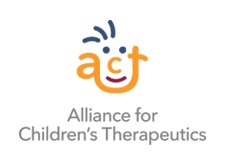 The Alliance for Children’s Therapeutics (ACT) was established last June by the Seattle Children’s Research Institute and biotechnology company Kineta with the purpose of being the first-of-its-kind pediatric research and funding partnership, and will now enlarge its reach of studies to inflammatory bowel disease (IBD), multiple sclerosis (MS) and asthma, as recently announced at the Partnering for Cures Conference in New York City. The main purpose of the alliance is accelerate the development of new treatments for autoimmune diseases in children and teenagers.
The Alliance for Children’s Therapeutics (ACT) was established last June by the Seattle Children’s Research Institute and biotechnology company Kineta with the purpose of being the first-of-its-kind pediatric research and funding partnership, and will now enlarge its reach of studies to inflammatory bowel disease (IBD), multiple sclerosis (MS) and asthma, as recently announced at the Partnering for Cures Conference in New York City. The main purpose of the alliance is accelerate the development of new treatments for autoimmune diseases in children and teenagers.
IBD, MS, and asthma will now join lupus nephritis in the list of diseases that ACT is working on. Until now the alliance has been dedicated to pre-clinical research on the use of cells from the pediatric patients suffering from lupus nephritis, called ShK – 186, which has revealed encouraging results that were presented this year at the American College of Rheumatology in Boston.
“The pressing need to overcome the barriers to advance pediatric studies especially in autoimmune disease, and some early but promising lupus lab work with ShK – 186 has attracted significant interest from the research community, and has led to this expansion,” said the CEO of Kineta, Charles Magness. “Our goal is to move these programs into clinical settings next year.”
There are currently no medications approved by the U.S. Food and Drug Administration (FDA) for the treatment of lupus nephritis or MS in children, and treating children with medication that was not created for growing bodies may be dangerous. Therefore, the ACT believes that the ShK – 186 project may help enhance the design of pediatric drugs, providing safer and more effective treatment for children and teenagers. In addition to lupus, the research will start by including MS, but the alliance expects to be able to include IBD and asthma as well soon.
“The pediatric autoimmunity research program at Seattle Children’s Research Institute is focused on defining the genetic causes of pediatric autoimmune diseases, and creating better treatments for children and teens afflicted with these conditions,” explained the director of the Center for Immunity and Immunotherapies at Seattle Children’s Research Institute, David Rawlings, MD.
“Our collaboration with Kineta is giving us access to a new set of tools that is imperative in our quest to make progress in both areas. Even though ACT is initially focusing on a few autoimmune diseases; we expect our work will contribute to a broader understanding of the underlying mechanisms of autoimmune disorders and how to best treat them,” he added.
In addition to conducting novel research, ACT will also work with an innovative and collaborative funding model, combining both philanthropic donations from the Seattle Children’s Research Institute, and equity investments by Kineta. “There is no federal funding available to support development of ShK – 186 into a viable treatment for children and teens with autoimmune diseases,” said Rawlings.
